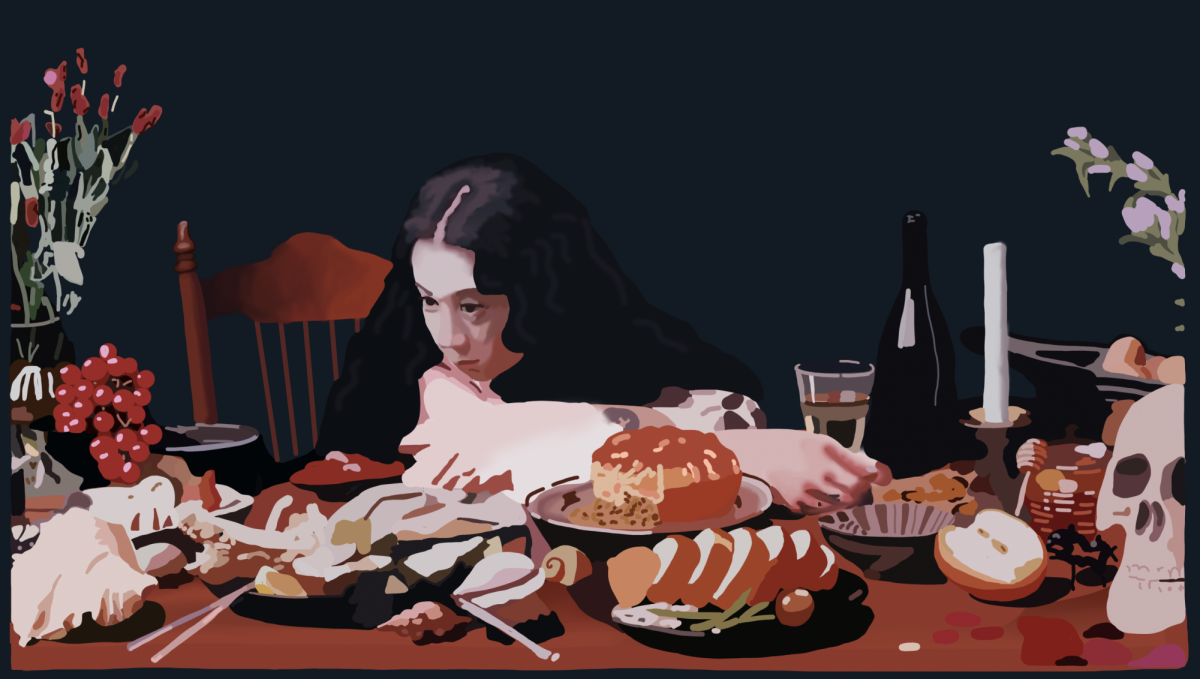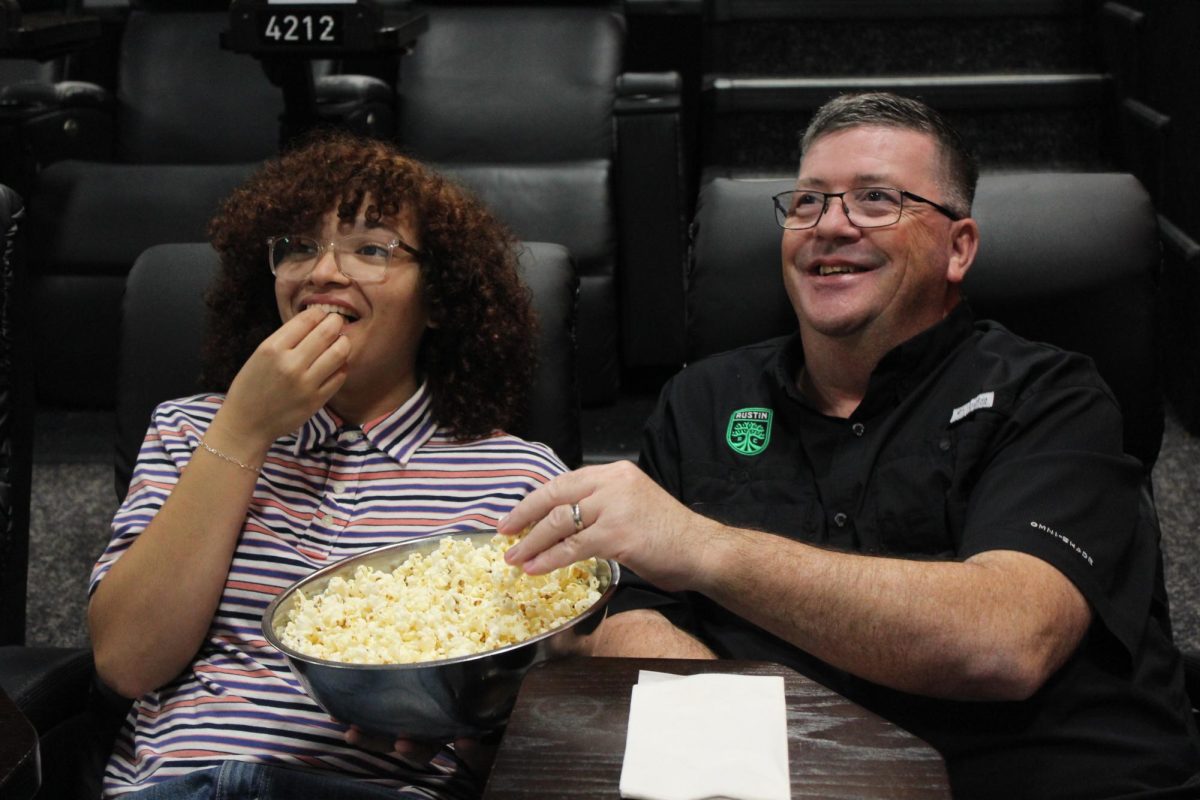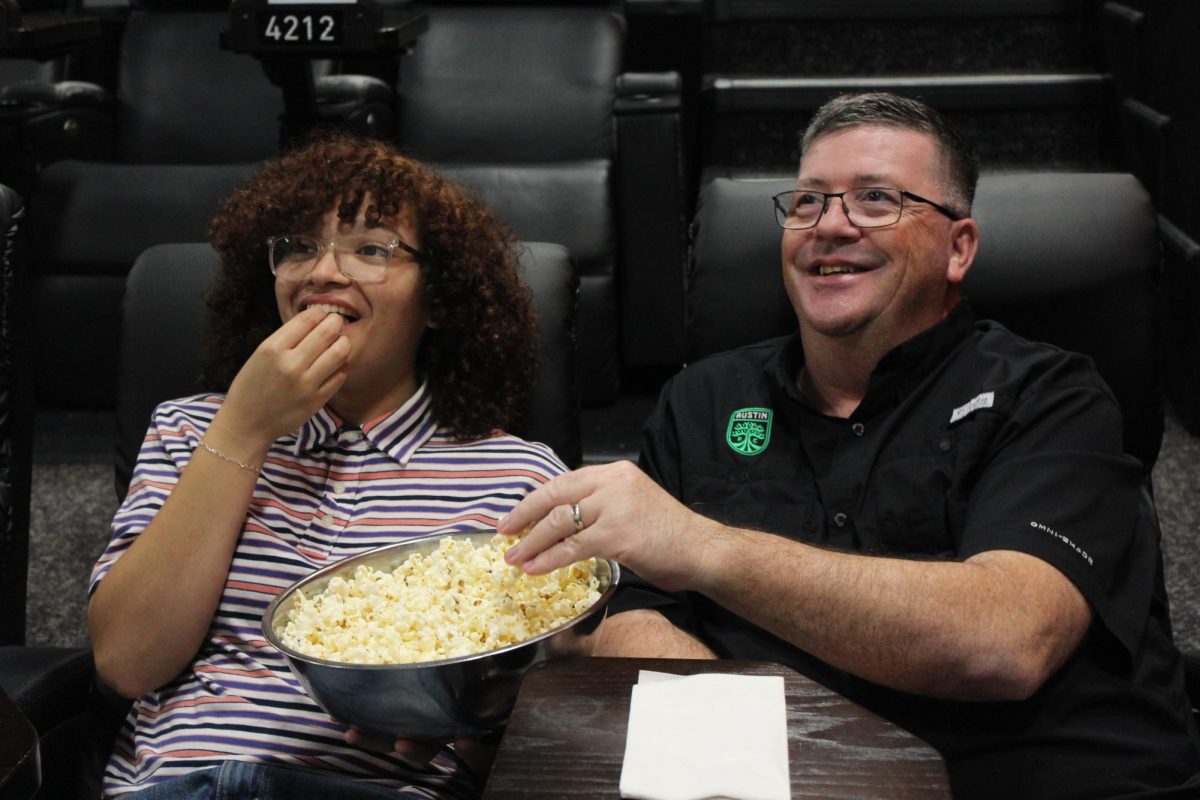Think about your favorite artist.
A person or a group of people who are meaningful, a sound that never gets old and never fades out of view.
For me, that band is Japanese Breakfast, an indie pop band that kicked off their tour in Austin this past month after releasing their latest album, For Melancholy Brunettes (& Sad Women). I’ve been a fan of their music for years and couldn’t pass up the opportunity to see them live.
I want to discuss their newest work, as well as their older material, and the practically seamless blend of the two into live music.
The band has been a staple in the music scene for years, gaining massive popularity in 2021 with the release of Jubilee, a 36-minute journey through heartbreak and jubilation.
This album is incredible, even four years later. It’s an album that’s in constant rotation in my life and my playlists.
Although their newest album is quite beautiful, Jubilee remains my favorite of their work. It’s deep and riveting, and every time I listen to it I am brought back to the first time I saw the iconic yellow cover. There’s an indefinable quality that makes a record a permanent fixture in your life. Jubilee has managed that feat. It never gets old, and never runs out of steam.
It’s simultaneously a journey through heartbreak and a celebration of life. Some songs may sound deceptively upbeat, but they all betray deeper emotion and vulnerability.
If you view all emotions as interconnected, as I do, it’s easier to see that the album is not more joyous than their newest addition. Jubilee is complex and leaves nothing to be desired. It places importance on all spheres of emotion, all colors of blue, and the love within pain.
As for Melancholy Brunettes (& Sad Women) as an album, I think it’s a fantastic exhibit of what makes Japanese Breakfast so special.
It remains complex and romantic, a tale of love and loss. I was excited to see how they would combine their diverse combination of music live.
A band’s music is an obviously essential part of the puzzle, but I think that stage presence is also important in the music a band makes. What they represent, how they embody the music, it’s all a defining factor in how special a band is.
It’s always a bit nerve-wracking for me to see an artist live. There is something so private about music, especially music that means something to you. Seeing influential artists live can sometimes make or break your opinion of them. But what is the trade-off between the quality of a band’s music and the quality of their character? Is it worth the risk?
I got the opportunity to review this other side of music with their most recent concert in Austin on April 23.
It was held at the Moody Center, a beautiful Austin venue where I saw Lyle Lovett perform six years ago. The Moody is a fixture in the live music scene and has shared a stage with names like Justin Timberlake, Mary J. Blige, and the occasional Hot Wheels Monster Truck rally.
The stage was beautiful and mimicked a classic work of art, The Birth of Venus by Botticelli, an intended reference to the melancholy and lonesome trend in the album. Like the first act, this attention to detail made the night more impactful.
When they came on, we were met with a beautiful open shell as lead singer, Michelle Zauner took the stage with the opening song, Paprika.
Her voice was angelic and deep. It sounded better than the studio version and reverberated through the floor. You could feel every beat and every note in your feet and the lights were spectacular.
The set itself was everything that it needed to be. They didn’t just stay with their newest album, but traveled down their discography into the early days with “Body is a Blade” and “The Woman That Loves You”.
There wasn’t a lot of interaction with the crowd, but they were so invested in the music that it was hard to fault them, and it didn’t feel like anything was missing from the experience.
Japanese Breakfast is a group of people who have made music that defines my inner playlist. Seeing them live was a very full-circle moment. From feeling the heartbreak in their songs in my own room to feeling the heartbreak in their songs live with hundreds of people.
Music like that is good for the soul. It’s healing to be in a place where you’re surrounded by people brought together by a love for music. It speaks to the human experience, to the shared commonalities that connect us.
Everyone there was linked to the music in different ways and at different times.
Music is very important to me. Japanese Breakfast has followed me through high school and lingered in my playlists and in my heart through some of my most influential years. Seeing a band with so much presence off and on stage with someone so meaningful to me was an incredibly beautiful experience.
It’s almost impossible to avoid a para-social relationship with the band. They are so passionate about music and its meaning. These are people who care about what they make, people who feel the music in their souls.
It’s beautiful when a band can find massive amounts of fame and still seem so in tune with their music, with the shared experience that made their music so endearing to the people who listened to them.
Japanese Breakfast feels like a band that has maintained its authenticity despite growing popularity, a concept that is clear when seeing them live. Zauner is an undeniably incredible artist and my expectations were upheld and exceeded seeing them live.
A really poignant and lingering band carries a certain expectation with them. Being a musician comes with more than just the music. It’s about what you embody, what you mean to the people that listen to you.









